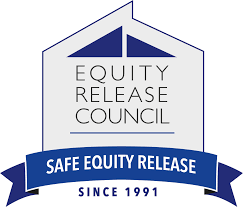 Equity release customers have saved nearly £300m in borrowing costs through voluntary penalty-free repayments over the past two years, according to new data from the Equity Release Council.
Equity release customers have saved nearly £300m in borrowing costs through voluntary penalty-free repayments over the past two years, according to new data from the Equity Release Council.
Over 360,000 such repayments were made in 2022 and 2023, reflecting the increasing trend among homeowners to manage their equity release loans proactively.
This significant achievement highlights the evolving landscape of equity release products and the growing awareness among customers about the financial benefits of early repayment. With modern equity release products offering greater flexibility, homeowners are taking advantage of these features to reduce their overall borrowing costs and enhance their financial security.
Tom Philips, from Equity Release Warehouse and Equity Release Calculator, commented: “This substantial savings milestone underscores the flexibility and benefits of modern equity release products. By making voluntary repayments, customers significantly reduce their long-term borrowing costs, enhancing their financial stability and preserving inheritance. This trend demonstrates a more financially savvy approach among retirees, who are now better informed about managing their finances in later life.”
The report from the Equity Release Council reveals several key findings:
+ Increase in Total Repayments: The total value of voluntary repayments saw an 18% increase, rising from £102m in 2022 to £120m in 2023. This growth indicates a rising awareness and willingness among customers to take proactive steps in managing their equity release loans.
+ Rise in Average Repayment Size: The average size of repayments also saw a notable increase, climbing 30% from £538 to £697. This suggests that more customers are making larger repayments to reduce their loan balances more quickly.
+ Penalty-Free Repayments: Since March 2022, all Equity Release Council standard products have included the option for penalty-free voluntary repayments. This feature has been instrumental in allowing customers to manage their borrowing more effectively without incurring additional costs.
The flexibility to make these repayments, without penalties, is a testament to the industry’s commitment to customer-centric policies. The ability to repay voluntarily gives homeowners the power to control their debt levels and reduce interest accrual, ultimately saving them significant amounts in borrowing costs.
Philips further noted: “The introduction of penalty-free repayments has been a game-changer for the equity release market. It provides customers with the flexibility to adjust their borrowing according to their financial situation, making equity release a more attractive and viable option for many retirees.”


All this is a bit murky really. It seems like basics such as interest rates and long term effects on an estate are all kept deliberately mysterious and opaque. I was recently asked to calculate a interest rate based on £45,000 bill from the £15,000 originally borrowed. The people who released the cash and their executors really ought to have an understand of compound interest and how it will significant erode the equity in a property. In that case the property uplift was about 1.5% less than the interest charged on the borrowing each year
You must be logged in to like or dislike this comments.
Click to login
Don't have an account? Click here to register
Equity release products are very dangerous if you ask me (my humble opinion obviously).
I once dealt with a house where, for a modest borrowing of £30k, which was still held in the homeowner’s bank account because he hadn’t got round to spending it yet, the family of a deceased equity release customer were at the complete mercy of the equity release company.
In the end I worked out that a £30,000 equity release loan, when all the fees were taken into account, cost the family over £50,000 in equity when the property finally sold. Not a bad little profit margin for less than 12 months lending. And all on a property that was only worth £210,000.
Mind you, it could have been more, that was as much info as I could gather without being overly intrusive during a family’s grief.
The correct answer is to downsize – find a smaller property and use the money from the sale of your old property. I know that this doesn’t suit everyone, but the Equity Release route is the “easy” path and someone is making a (huge?) profit by making it easy for you.
You must be logged in to like or dislike this comments.
Click to login
Don't have an account? Click here to register